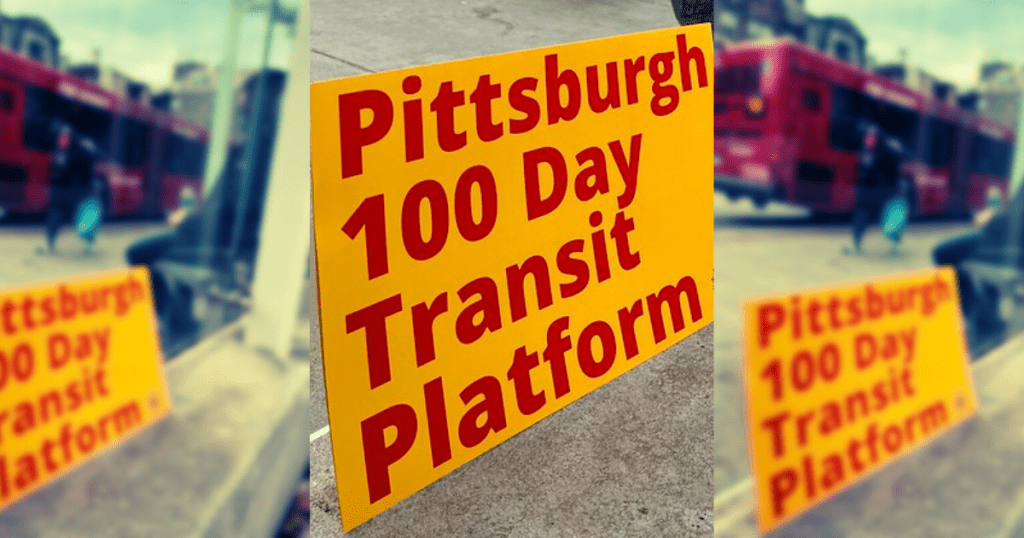
When it Comes to Shared E-Scooters (and All Transportation Initiatives), Legislators Should Center Those With the Most at Stake
This week, as the PA Senate decided not to take up legislation that would extend and expand shared E-Scooter programs in Pennsylvania, they have effectively stopped the SPIN scooter pilot program here in Pittsburgh. Residents throughout Pittsburgh who are disabled, elderly, have real mobility needs, and are in search of real mobility solutions have long raised concerns about scooters and their prioritization in the City’s transportation policy and the unreliable, untransparent data around safety and environmental impact that the company was reporting to the City. It is good that the PA Senate heard these concerns, however, the end of this Scooter pilot is not a victory. The issues that we have uplifted throughout our campaign have not been won and we will continue organizing toward these goals because they are more pressing than ever.
So as legislators in the City of Pittsburgh and in Harrisburg continue to shape the future of our transportation system, Pittsburghers for Public Transit continues to advocate for the kinds of mobility priorities that will make equity and access a reality in our communities, all of which are at the heart of PPT’s Pittsburgh 100 Day Transit Platform:
- Sidewalks are critical. Our sidewalks are the most important public right-of-ways for our most vulnerable community members, including for older adults, for parents pushing strollers, for people with disabilities, and for transit riders. Instead of policies that disinvest in public spaces and sell them off to private interests, our government agencies need to develop, maintain, and keep sidewalks clear of all obstacles. This includes shared e-scooters, car parking, sidewalk dining and construction equipment. For starters, if scooters were ever to work in a city, they must be parked in corrals and the company should be fined– not financially rewarded– for sidewalk parking violations.
- People with disabilities, low-income residents, and residents in transit deserts should be at the table, making decisions around the mobility gaps that they experience the most acutely. These residents should not have to struggle to be heard once decisions have long been made on their behalf, policy decisions based on the dubious premise that the needs of the most vulnerable are being served even in their absence or against their objections.
- Pennsylvania cities need to have transportation policies that support and center public, mass transit, which moves the lion’s share of our residents– hundreds of thousands of people each day – traveling outside of single-occupancy vehicles. The central transportation mandate of Pittsburgh’s Department of Mobility and Infrastructure (DOMI) should be to support the dignified and easy access of residents and visitors to quality public transit: through connected and clear sidewalks, bus shelters, bus priority lanes, and incentives that support affordable housing near our best transit assets.